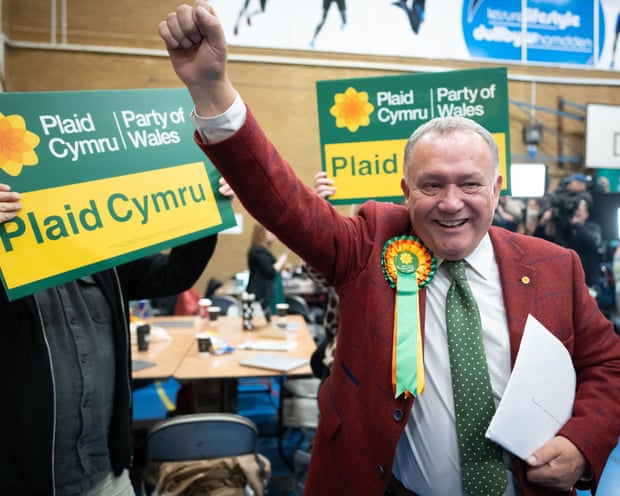"It's just preposterous, the idea that if a party comes third in terms of the number of votes, it still somehow has the right to continue swatting at Number 10 [Downing Street] and continue to lay claim to having the prime minister form the government," he said.This is foolish as if constitutional reform is so essential, the Liberal Democrats should use any opportunity to force it through, even if it means forming a coalition with the third placed party. If the system is potty and irrational, the sensible thing would be to change it as quickly as possible - and it is hard to see the Tories agreeing to strategic catastrophe that electoral reform would mean for them.
"What I'm saying here is pointing at a very, very irrational possible outcome of our potty electoral system, which is that a party which has spectacularly lost the election because fewer and fewer people are voting for it than any other party, can nonetheless, according to constitutional tradition and convention, still lay claim to providing the prime minister." (1)
The more sensible approach would be to say, bluntly, that some things are important enough to justify almost any means necessary to achieve them - even putting Gordon Brown back in Downing Street. At least, if a pragmatic dalliance with Labour produces PR, Clegg can say, "Well, that sucked for me, too, but now we never need to do that again."
Instead, in a weird fit of scruple, he's decided to put principles first and go with the numbers. This is one time, probably, when the generally holier-than-thou Lib-Dems won't thank him for it. They've been suffering from the unfairness of First Past the Post since the party was formed. They've done enough of the principles, and they'd like something to show for it, thank you.
After all, it isn't like anyone is likely to thank him if he puts David Cameron in. The country will be worse of, as Cameron and his chancellor seem absolutely clueless. Given that an alliance with the Tories is unlikely to yield up the reforms the liberal Democrat voters want, they'll be even more unimpressed than the rest of us.
A further complication is the position this places the leftwing of the Liberal Democrats in. The social democrats, like myself, who can move quite comfortably between the Liberal Democrats and (old) Labour are left with no reason to support him.
Under First Past the Post, a strong liberal showing might produce an unlikely Labour victory from third place. So social democrats such as myself win twice over - economic progressive policies from Labour, and the Lib-dems (hopefully) curbing their coalition partner's authoritarian impulses, and forming Labour to make good on electoral and constitutional reform.
Now, if the social democrats vote Lib-Dem, it increases the likelihood of the party coalescing with the Tories, which in turn means a reduced likelihood of electoral reform and the end of progressive politics for a decade or so.
What would be the point of that?
1- "Clegg hints at Conservative coalition," by Phillip Williams. Published by ABC News, 26th of April, 2010. (http://www.abc.net.au/news/stories/2010/04/26/2882683.htm?section=world)


2 comments:
We need a proportional vote that allows us to choose the portion of the Lib Dems we want to support.
While there's been consideration of what might happen to the two main parties under PR - Labour splitting into Old and New branches, the Tories factionalising over Europe, it would be interesting to see if the Lib Dems themselves survive PR. The Cleggite right might split off to join up with the Clarkite left of the Conservative Party, and the left Libs might find more in common with some aspects of the Labour party.
Clegg might be the first Lib Dem leader to get a whiff of power - and the last.
Post a Comment